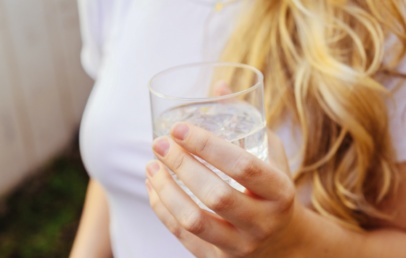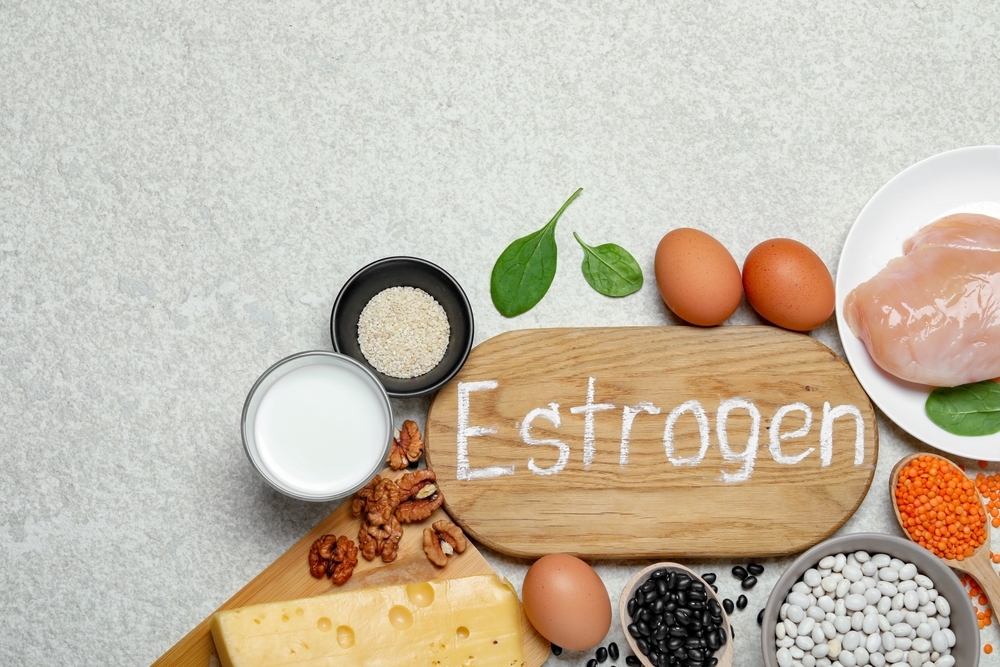
Your diet can affect hormone balance in addition to providing your body with energy. Plant substances called phytoestrogens, which function similarly to estrogen once within the body, are naturally present in a number of foods. Phytoestrogens can balance or gently increase estrogen activity, depending on your needs. They also offer numerous other health advantages, such as heart protection, strong bones, and radiant skin.
For a natural hormone-friendly boost, include these 11 foods high in estrogen in your diet.
1. Soy Products
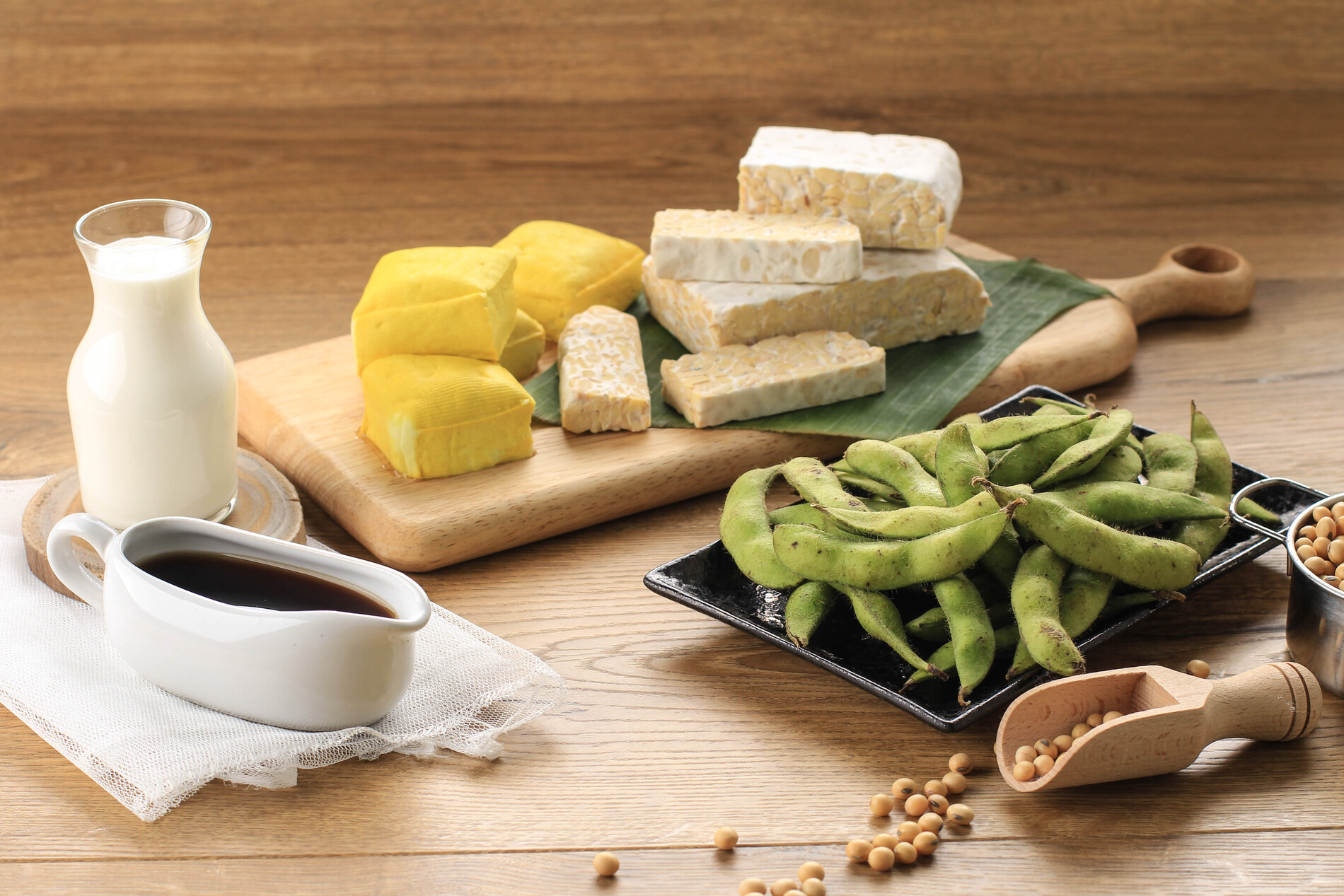
Because of its isoflavones, soy is one of the most well-known sources of phytoestrogens. These substances can help lower estrogen levels in people with excess levels and raise them in people with low estrogen, such as those going through menopause. Soy is special because of this balancing effect. Furthermore, soy is high in fiber, magnesium, B vitamins, and protein. Tofu, tempeh, soy milk, miso, soy sauce, and edamame are examples of common foods made from soy. Including soy in your diet can be an easy way to promote nutrition and hormone health.
2. Chickpeas

Chickpeas are a well-liked legume that works well in soups, salads, and hummus. Phytoestrogens found in them have the potential to improve hormone balance. In addition to their estrogen-like properties, chickpeas are heart-healthy and filling because they are high in fiber and plant-based protein. Additionally, they supply iron, which is particularly advantageous for women, and may improve general wellness and energy levels.
3. Lentils
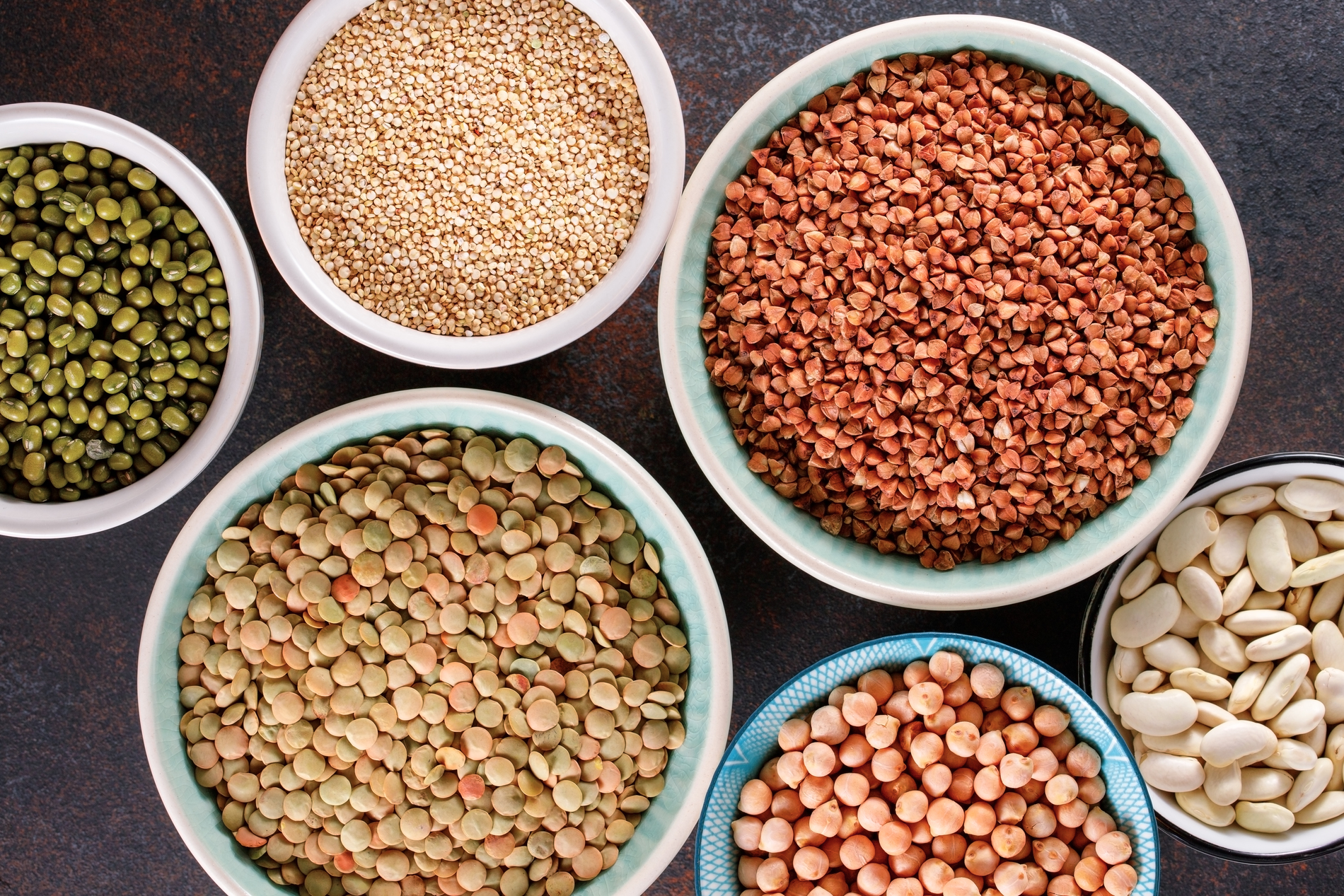
Another legume that is high in phytoestrogens is lentils. They are cheap, simple to prepare, and incredibly nutrient-dense, offering iron, folate, and protein. They are a wise addition for anyone wishing to subtly support hormone balance, especially during menopause, due to their phytoestrogen content. Lentils are a win-win food for general health because they are also great for digestive health and may help lower cholesterol.
4. Beans
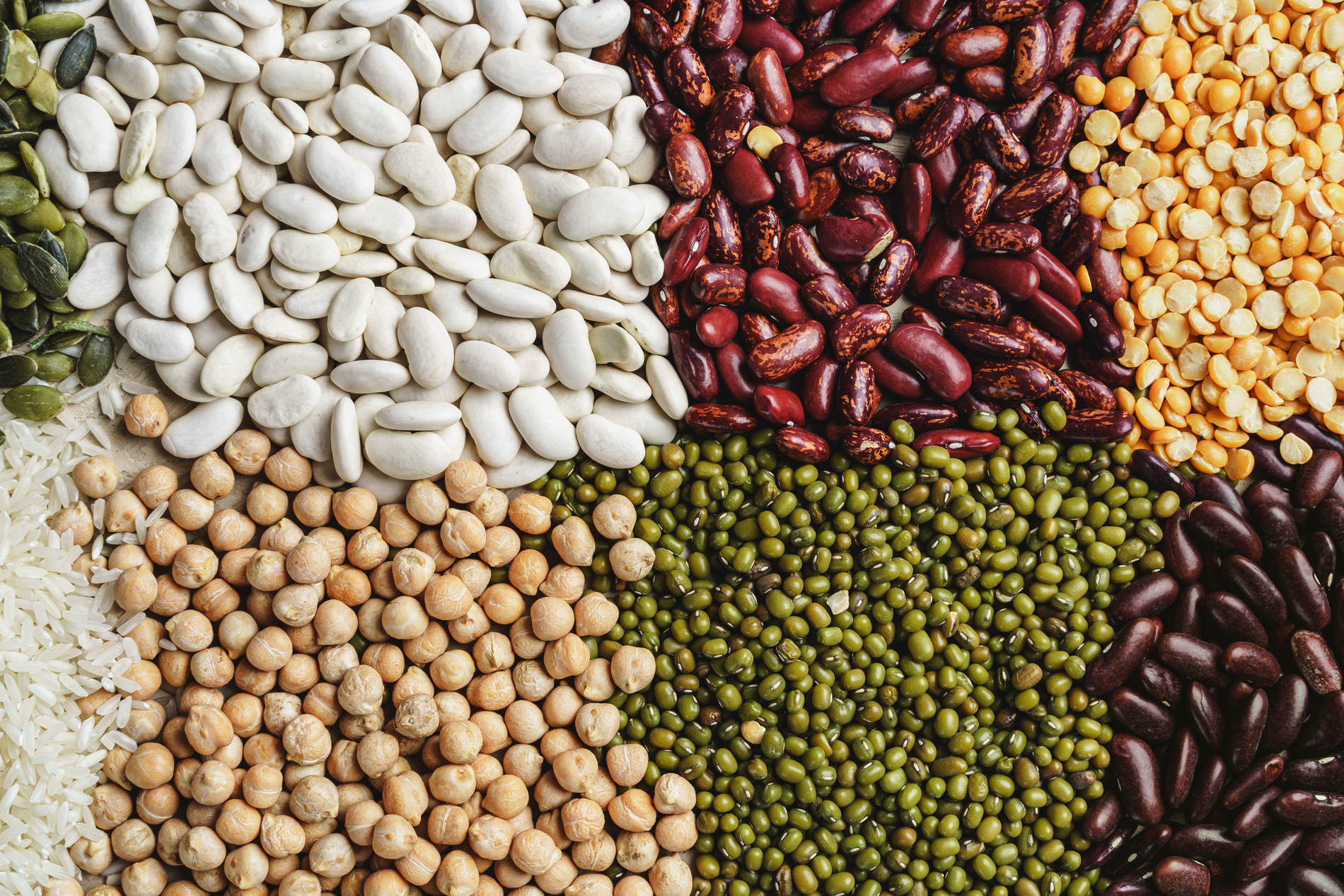
Phytoestrogens are found in split peas, kidney beans, navy beans, and pinto beans. Additionally, they contain a lot of dietary fiber, which aids in stable blood sugar levels and digestion. Eating beans on a regular basis can help with hormone regulation, heart health, and long-lasting energy due to their plant-based estrogen content. Beans are so adaptable that they can be blended into dips or added to salads, stews, and soups.
5. Flaxseeds

One of the best sources of lignans, a kind of phytoestrogen that can support hormone balance, is flaxseeds. According to research, lignans may protect against some types of cancer, promote heart health, and lessen some menopausal symptoms. Flaxseeds are also rich in protein, fiber, and omega-3 fatty acids. Flaxseeds are a fantastic addition to smoothies, oatmeal, and baked goods because grinding them before consumption improves the body’s absorption of their nutrients.
6. Nuts
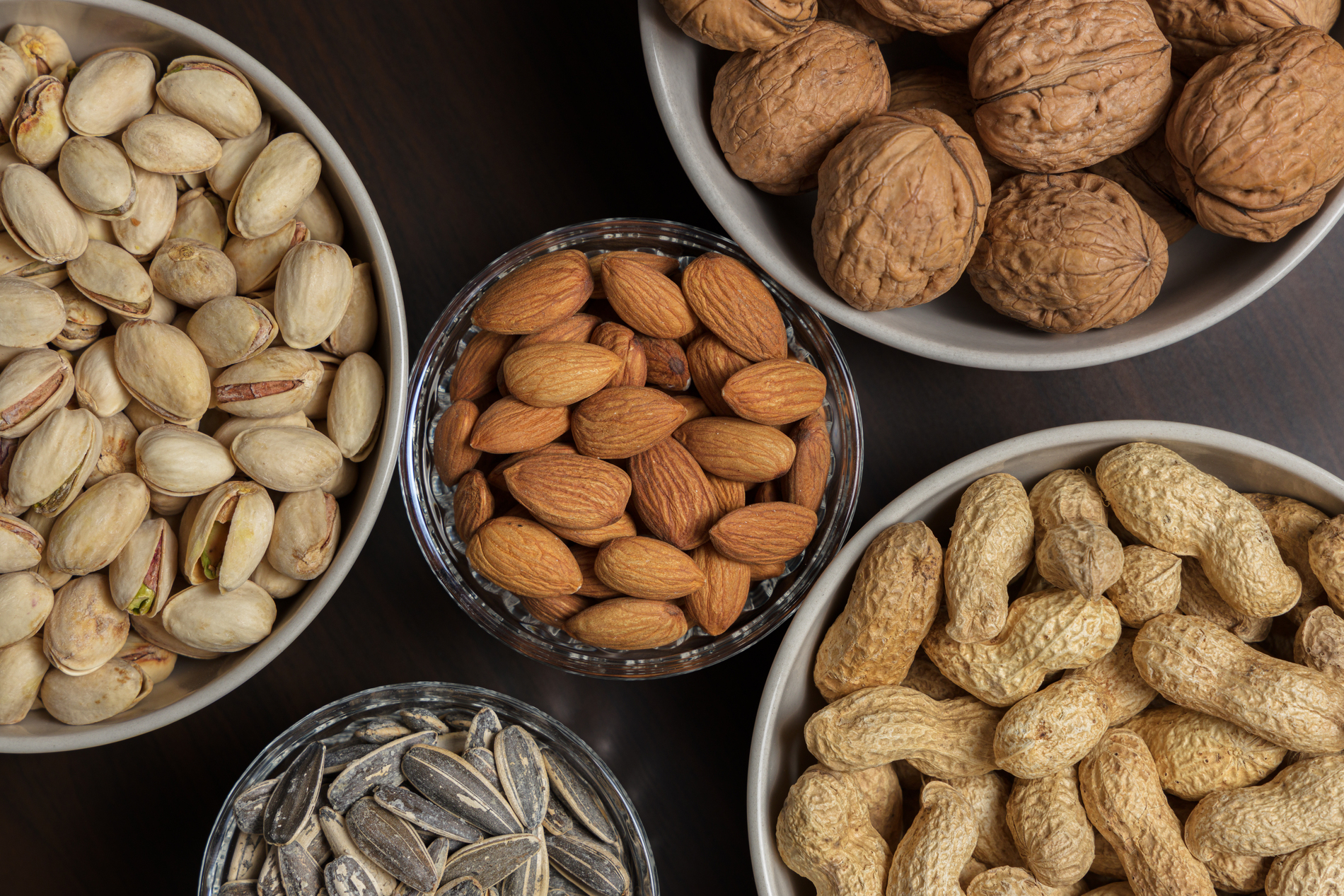
Nuts like walnuts, almonds, and pistachios offer antioxidants, plant-based protein, and healthy fats in addition to moderate levels of phytoestrogens. Resveratrol, a substance associated with cardiovascular and anti-aging advantages, is known to be present in certain nuts, especially peanuts and pistachios. A convenient method to promote hormone balance and general well-being is to eat a small handful of nuts every day.
7. Sesame and Sunflower Seeds
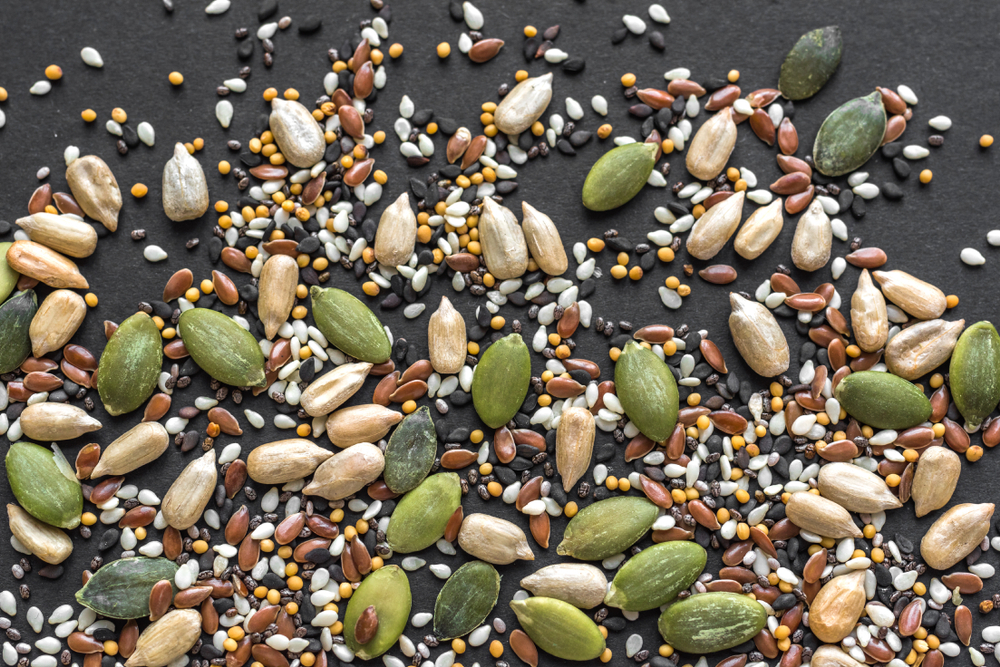
When it comes to phytoestrogens, seeds like sunflower and sesame seeds are tiny but powerful. They are particularly high in lignans, which may promote heart health and control hormone activity. They also supply essential minerals like zinc and magnesium, vitamin E, and good fats. These seeds are a simple way to add nutrients to salads, smoothies, or granola.
8. Fruits

Numerous fruits naturally contain phytoestrogens, frequently in the form of resveratrol or lignans. Resveratrol, found in grapes, for instance, is associated with heart health and decreased inflammation. Other foods high in compounds that may help maintain estrogen balance include peaches, apples, pomegranates, strawberries, blackberries, and prunes. Fruits are a vital component of any balanced diet because, in addition to their hormone-boosting properties, they also contain fiber, vitamins, and antioxidants that support general health.
9. Cruciferous Vegetables
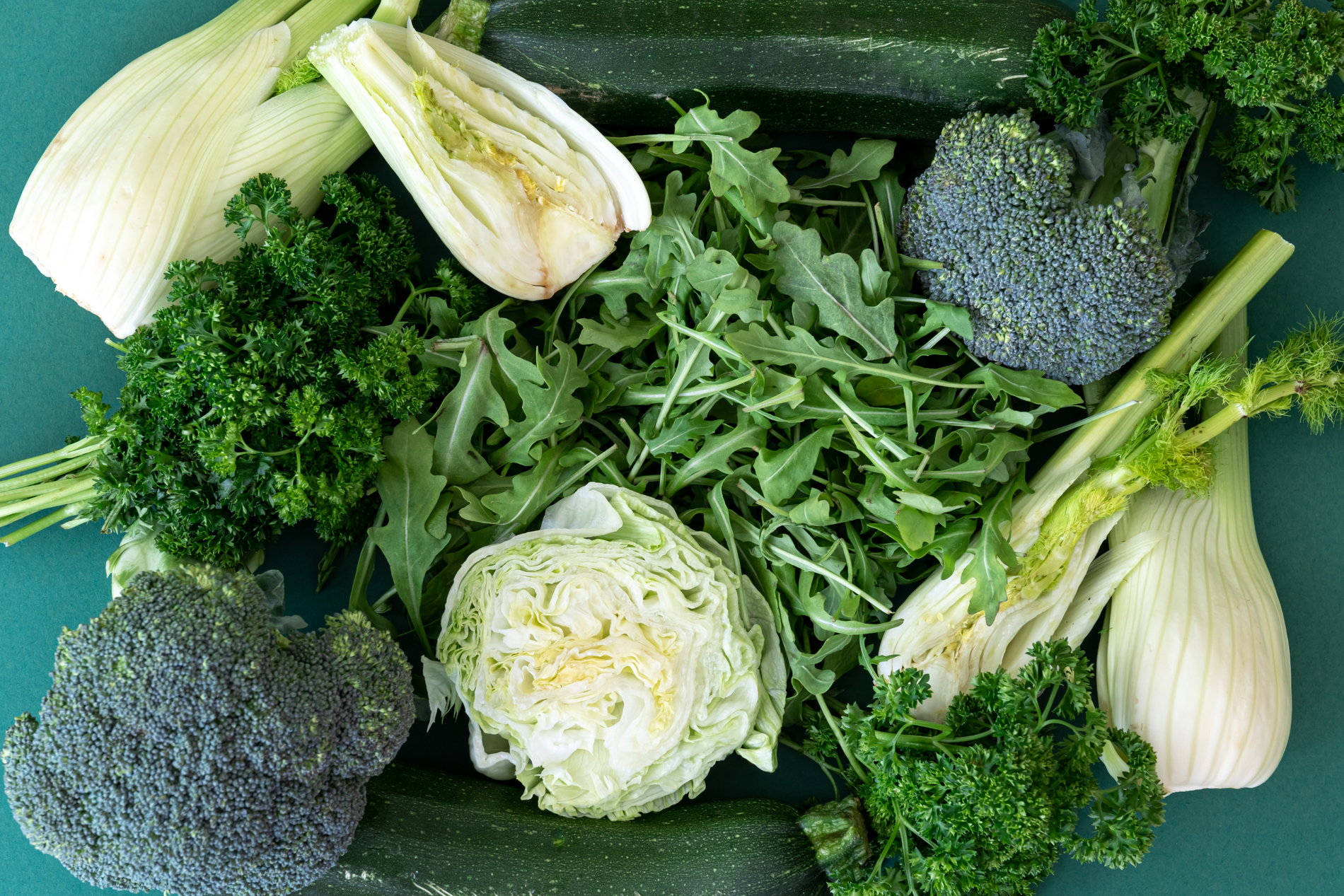
Broccoli, Brussels sprouts, cabbage, collard greens, spinach, and other cruciferous vegetables are great sources of phytoestrogens and other healthy plant substances. These vegetables are also rich in fiber, vitamins, and minerals, making them vital for digestive and general health. Another member of this group, garlic, has even been researched for its possible contribution to bone health and fracture prevention. Regular consumption of cruciferous vegetables can help prevent disease over time and support hormones.
10. Whole Grains
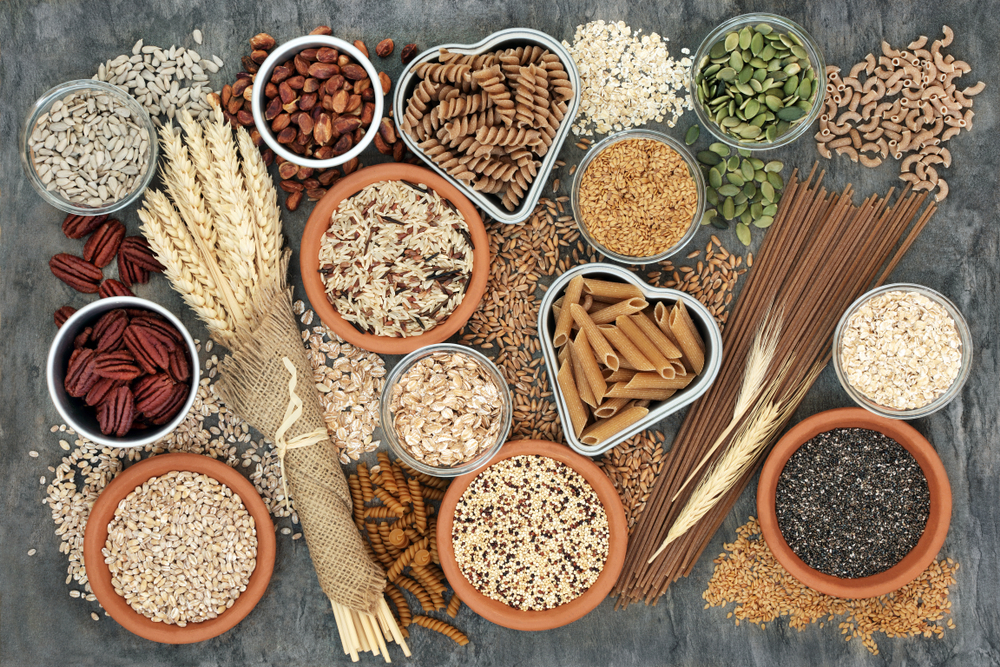
Lignans are the main form of phytoestrogen found in whole grains like barley, rye, quinoa, and whole wheat. These substances may lower the risk of osteoporosis and heart disease, especially in postmenopausal women. Additionally, whole grains are high in fiber, which aids in digestion, maintains blood sugar levels, and encourages fullness. You can benefit from these hormonal and general health advantages by replacing refined grains in your meals with whole grains.
11. Red Wine (in Moderation)

Resveratrol, a phytoestrogen with anti-inflammatory and antioxidant properties, is abundant in red wine made from grape skins. Moderate consumption of red wine may have heart-healthy benefits, but it’s vital to keep in mind that excessive alcohol consumption can have negative health effects. For those who would rather not consume alcohol, resveratrol can still be found in grapes and grape juice.
In addition to offering a variety of other health advantages, foods high in phytoestrogen, such as soy, flaxseeds, nuts, seeds, fruits, and whole grains, can subtly alter hormone balance. Including phytoestrogens in a balanced diet is generally regarded as safe and beneficial for most people, even though research indicates that their effects can vary depending on the individual.
Before making major dietary changes, it’s best to speak with your healthcare provider if you have concerns about your hormone levels or are managing an estrogen-related condition.
Including a range of these foods in your diets gives your body the nutrients it needs for strength, energy, and long-term health in addition to supporting hormone health.



